Bulk almonds in shell are an essential component of the global nut industry. Consisting of almonds still encased in their hard outer shells, these nuts are highly sought after for their versatility, nutritional benefits, and wide range of applications. This article will provide an overview of the business potential of bulk almonds in shell, exploring their market demand, economical value, health benefits, and strategic considerations for businesses interested in venturing into this sector. Market Demand: The demand for bulk almonds in shell has been steadily increasing over the years. This growth can be attributed to several factors, including the rising popularity of healthy snacking options, increasing consumer awareness of the nutritional benefits of almonds, and their versatile usage in various culinary applications. Bulk almonds in shell are primarily used as an ingredient in the food industry. They are commonly used in baking, confectionery, and snack manufacturing, and are also added to cereals, granola bars, and trail mixes. Furthermore, the market demand extends beyond the food sector, as the shells are utilized in the production of animal feed, biofuels, and cosmetic products. Economical Value: The economic value of bulk almonds in shell is substantial. The demand for almonds in general continues to rise, suggesting a positive outlook for the industry. According to data from the United States Department of Agriculture (USDA), the global consumption of almonds has tripled in the past two decades. Almonds are considered a valuable cash crop due to their high economic return per acre and relatively low production costs. The in-shell almonds market specifically allows for added flexibility in pricing due to their different size classifications, ranging from large to small.

nut
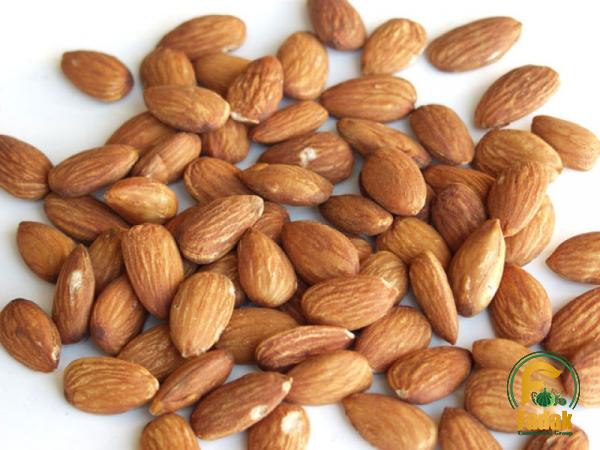 This provides opportunities for businesses to cater to various market segments and target specific customer preferences based on shell size. Health Benefits: Consumers are increasingly choosing healthier options in their diets, and almonds are often an integral part of this shift. Almonds have gained a reputation for their numerous health benefits, including being a rich source of protein, dietary fiber, healthy fats, and essential vitamins and minerals. Almonds are known to support heart health by helping to reduce cholesterol levels and lowering the risk of cardiovascular diseases. Additionally, they may aid in weight management, as the consumption of almonds can increase feelings of fullness, leading to reduced calorie intake throughout the day. Strategic Considerations: For businesses looking to venture into the bulk almonds in shell industry, there are several strategic considerations to keep in mind: 1. Sourcing: Establishing strong relationships with reliable almond growers and suppliers is crucial. Ensuring a consistent supply of high-quality almonds in shell is vital to meet customer demands and maintain product quality. 2. Processing and Packaging: Efficient processing and packaging facilities are required to separate the almonds from their shells and to ensure proper packaging and preservation. Excellence in these areas is essential for maintaining product freshness and minimizing waste. 3. Distribution Channel: Identifying the most appropriate distribution channel for bulk almonds in shell is crucial. This may involve direct selling to food manufacturers or establishing partnerships with distributors or wholesalers who have established networks within the industry. Conclusion: The business potential of bulk almonds in shell is promising, driven by increasing market demand, their economic value, and the growing interest in healthy food choices. The versatility and numerous health benefits associated with almonds have contributed to substantial growth in the industry. With careful strategic considerations in sourcing, processing, packaging, and distribution, businesses can successfully capitalize on the opportunities presented by bulk almonds in shell, unlocking their full potential within the global nut market.
This provides opportunities for businesses to cater to various market segments and target specific customer preferences based on shell size. Health Benefits: Consumers are increasingly choosing healthier options in their diets, and almonds are often an integral part of this shift. Almonds have gained a reputation for their numerous health benefits, including being a rich source of protein, dietary fiber, healthy fats, and essential vitamins and minerals. Almonds are known to support heart health by helping to reduce cholesterol levels and lowering the risk of cardiovascular diseases. Additionally, they may aid in weight management, as the consumption of almonds can increase feelings of fullness, leading to reduced calorie intake throughout the day. Strategic Considerations: For businesses looking to venture into the bulk almonds in shell industry, there are several strategic considerations to keep in mind: 1. Sourcing: Establishing strong relationships with reliable almond growers and suppliers is crucial. Ensuring a consistent supply of high-quality almonds in shell is vital to meet customer demands and maintain product quality. 2. Processing and Packaging: Efficient processing and packaging facilities are required to separate the almonds from their shells and to ensure proper packaging and preservation. Excellence in these areas is essential for maintaining product freshness and minimizing waste. 3. Distribution Channel: Identifying the most appropriate distribution channel for bulk almonds in shell is crucial. This may involve direct selling to food manufacturers or establishing partnerships with distributors or wholesalers who have established networks within the industry. Conclusion: The business potential of bulk almonds in shell is promising, driven by increasing market demand, their economic value, and the growing interest in healthy food choices. The versatility and numerous health benefits associated with almonds have contributed to substantial growth in the industry. With careful strategic considerations in sourcing, processing, packaging, and distribution, businesses can successfully capitalize on the opportunities presented by bulk almonds in shell, unlocking their full potential within the global nut market.
Specifications of nut
 I. Market Analysis: The global market for bulk almonds in shell has witnessed significant growth in recent years. According to a report by Grand View Research, the global almond market size was valued at USD 4.64 billion in 2020 and is expected to grow at a compound annual growth rate (CAGR) of 9.9% from 2021 to 2028. One of the primary factors driving market growth is the increasing demand for healthy and natural food alternatives. Almonds, including those in shell, are a popular choice among health-conscious consumers due to their high nutritional content. They are an abundant source of protein, heart-healthy fats, vitamins, and minerals, making them an ideal snack option. This growing consumer preference for healthier foods is expected to continue fueling the demand for bulk almonds in shell. II. Industry Trends: 1. Rising Demand for Plant-Based Proteins: The increasing adoption of plant-based diets and the rising popularity of vegan and vegetarian lifestyles have contributed to the growing demand for almonds and almond-based products. Bulk almonds in shell are particularly favored for their high protein content, making them an excellent source of plant-based protein for individuals seeking alternatives to animal-based products. 2. Innovation in Almond-Based Products: Food manufacturers and snack companies are continually exploring new ways to incorporate almonds into their products. From almond milk to almond butter and almond-based snacks, the versatility of almonds allows for endless possibilities in product development. This trend presents opportunities for businesses to collaborate with food producers and co-create innovative almond-based products to cater to evolving consumer preferences. III. Supply Chain Considerations: 1. Almond Growers and Suppliers: Ensuring a stable supply of high-quality bulk almonds in shell requires establishing strong relationships with reliable almond growers and suppliers. Selecting suppliers who adhere to strict quality control measures and sustainability practices is paramount. Maintaining open lines of communication with suppliers is essential to stay up-to-date with market trends, varietal availability, and potential challenges that may impact the supply chain. 2. Efficient Processing and Packaging Facilities: Efficient processing and packaging are critical in the bulk almond industry to streamline operations and maintain product quality. Processing facilities should have the necessary equipment to shell the almonds efficiently, separate the shells from the kernels, and sort the almonds according to size. Proper packaging is essential to ensure product freshness, extend shelf life, and minimize damage during transportation. IV. Marketing and Distribution: 1. Direct Sales to Food Manufacturers: Directly selling bulk almonds in shell to food manufacturers enables businesses to establish a direct partnership and customize their offerings to meet specific requirements. This approach allows for more control over pricing, packaging, and branding, as well as the ability to offer bulk discounts to encourage larger order volumes. 2. Partnerships with Distributors and Wholesalers: Collaborating with established distributors and wholesalers within the nut and ingredient sector can provide widespread market access.
I. Market Analysis: The global market for bulk almonds in shell has witnessed significant growth in recent years. According to a report by Grand View Research, the global almond market size was valued at USD 4.64 billion in 2020 and is expected to grow at a compound annual growth rate (CAGR) of 9.9% from 2021 to 2028. One of the primary factors driving market growth is the increasing demand for healthy and natural food alternatives. Almonds, including those in shell, are a popular choice among health-conscious consumers due to their high nutritional content. They are an abundant source of protein, heart-healthy fats, vitamins, and minerals, making them an ideal snack option. This growing consumer preference for healthier foods is expected to continue fueling the demand for bulk almonds in shell. II. Industry Trends: 1. Rising Demand for Plant-Based Proteins: The increasing adoption of plant-based diets and the rising popularity of vegan and vegetarian lifestyles have contributed to the growing demand for almonds and almond-based products. Bulk almonds in shell are particularly favored for their high protein content, making them an excellent source of plant-based protein for individuals seeking alternatives to animal-based products. 2. Innovation in Almond-Based Products: Food manufacturers and snack companies are continually exploring new ways to incorporate almonds into their products. From almond milk to almond butter and almond-based snacks, the versatility of almonds allows for endless possibilities in product development. This trend presents opportunities for businesses to collaborate with food producers and co-create innovative almond-based products to cater to evolving consumer preferences. III. Supply Chain Considerations: 1. Almond Growers and Suppliers: Ensuring a stable supply of high-quality bulk almonds in shell requires establishing strong relationships with reliable almond growers and suppliers. Selecting suppliers who adhere to strict quality control measures and sustainability practices is paramount. Maintaining open lines of communication with suppliers is essential to stay up-to-date with market trends, varietal availability, and potential challenges that may impact the supply chain. 2. Efficient Processing and Packaging Facilities: Efficient processing and packaging are critical in the bulk almond industry to streamline operations and maintain product quality. Processing facilities should have the necessary equipment to shell the almonds efficiently, separate the shells from the kernels, and sort the almonds according to size. Proper packaging is essential to ensure product freshness, extend shelf life, and minimize damage during transportation. IV. Marketing and Distribution: 1. Direct Sales to Food Manufacturers: Directly selling bulk almonds in shell to food manufacturers enables businesses to establish a direct partnership and customize their offerings to meet specific requirements. This approach allows for more control over pricing, packaging, and branding, as well as the ability to offer bulk discounts to encourage larger order volumes. 2. Partnerships with Distributors and Wholesalers: Collaborating with established distributors and wholesalers within the nut and ingredient sector can provide widespread market access.
buy nut
 These partnerships can help businesses reach retailers, foodservice providers, and other potential customers who may value the convenience of sourcing bulk almonds in shell from a trusted intermediary. V. Export Opportunities: The global demand for almonds is not limited to any particular region. Countries such as the United States, Spain, Australia, and Iran are major producers of almonds, both in-shell and shelled. Therefore, exploring export opportunities can open doors to new markets and diversify revenue streams. Investing in market research to identify potential export markets, understanding cultural preferences, and complying with international trade regulations and certifications are vital steps for businesses venturing into the export market. Building relationships with international distributors or establishing local warehouses in target markets can further facilitate successful export operations. VI. Challenges and Risk Mitigation: While the business potential of bulk almonds in shell is promising, it is essential to acknowledge potential challenges that may arise: 1. Weather Conditions: Almond cultivation is heavily dependent on weather conditions, making it susceptible to crop failures due to drought, frost, or excessive heat. Engaging with almond growers in different regions and diversifying sourcing strategies can help mitigate the risk of supply disruption caused by regional weather conditions. 2. Pest and Disease Management: Almond orchards are vulnerable to various pests and diseases that can affect crop yield and quality. Collaborating with growers who consistently implement pest management practices and invest in disease-resistant almond varieties can help ensure a more stable supply chain. VII. Future Outlook: The future of the bulk almonds in shell industry looks promising, with a positive market outlook driven by increasing consumer demand for healthier snacks and plant-based proteins. Growing awareness of the nutritional benefits of almonds, combined with their versatility in various applications, positions bulk almonds in shell as a valuable and sought-after commodity. To maximize opportunities in the industry, businesses should focus on maintaining strong relationships with almond growers and suppliers, investing in efficient processing and packaging facilities, exploring innovative product development, and considering export opportunities for market diversification. In conclusion, the business potential of bulk almonds in shell is significant, driven by increasing market demand for healthy and natural food alternatives. With the right strategic considerations, businesses can capitalize on this potential and find success in the global nut market.
These partnerships can help businesses reach retailers, foodservice providers, and other potential customers who may value the convenience of sourcing bulk almonds in shell from a trusted intermediary. V. Export Opportunities: The global demand for almonds is not limited to any particular region. Countries such as the United States, Spain, Australia, and Iran are major producers of almonds, both in-shell and shelled. Therefore, exploring export opportunities can open doors to new markets and diversify revenue streams. Investing in market research to identify potential export markets, understanding cultural preferences, and complying with international trade regulations and certifications are vital steps for businesses venturing into the export market. Building relationships with international distributors or establishing local warehouses in target markets can further facilitate successful export operations. VI. Challenges and Risk Mitigation: While the business potential of bulk almonds in shell is promising, it is essential to acknowledge potential challenges that may arise: 1. Weather Conditions: Almond cultivation is heavily dependent on weather conditions, making it susceptible to crop failures due to drought, frost, or excessive heat. Engaging with almond growers in different regions and diversifying sourcing strategies can help mitigate the risk of supply disruption caused by regional weather conditions. 2. Pest and Disease Management: Almond orchards are vulnerable to various pests and diseases that can affect crop yield and quality. Collaborating with growers who consistently implement pest management practices and invest in disease-resistant almond varieties can help ensure a more stable supply chain. VII. Future Outlook: The future of the bulk almonds in shell industry looks promising, with a positive market outlook driven by increasing consumer demand for healthier snacks and plant-based proteins. Growing awareness of the nutritional benefits of almonds, combined with their versatility in various applications, positions bulk almonds in shell as a valuable and sought-after commodity. To maximize opportunities in the industry, businesses should focus on maintaining strong relationships with almond growers and suppliers, investing in efficient processing and packaging facilities, exploring innovative product development, and considering export opportunities for market diversification. In conclusion, the business potential of bulk almonds in shell is significant, driven by increasing market demand for healthy and natural food alternatives. With the right strategic considerations, businesses can capitalize on this potential and find success in the global nut market.

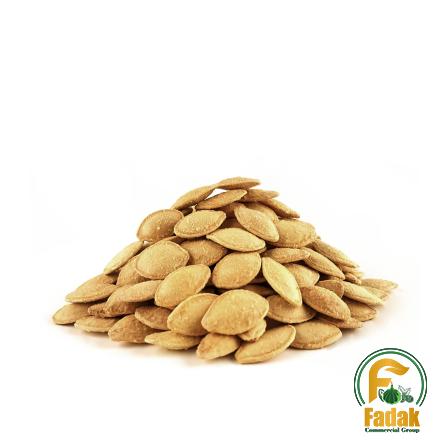
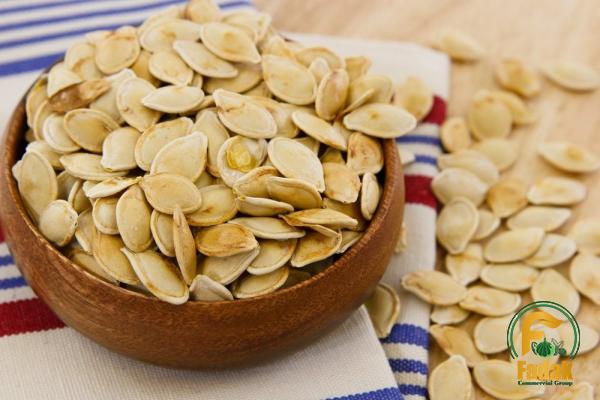
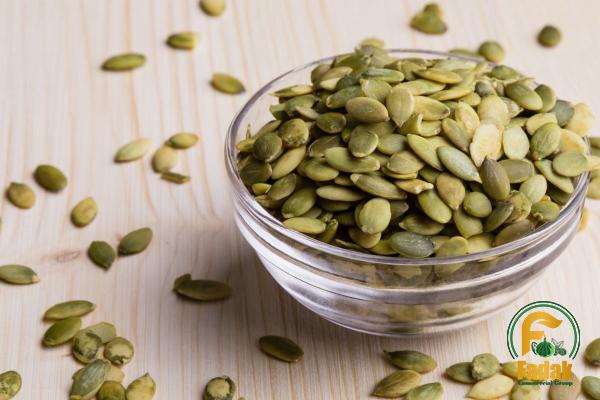
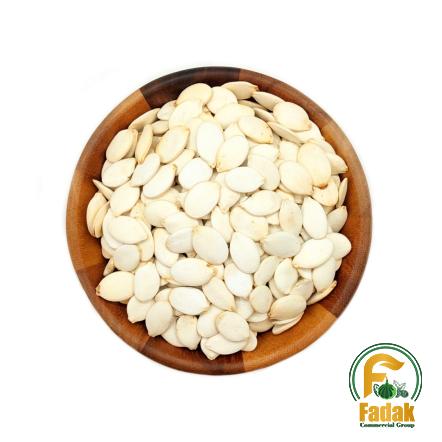
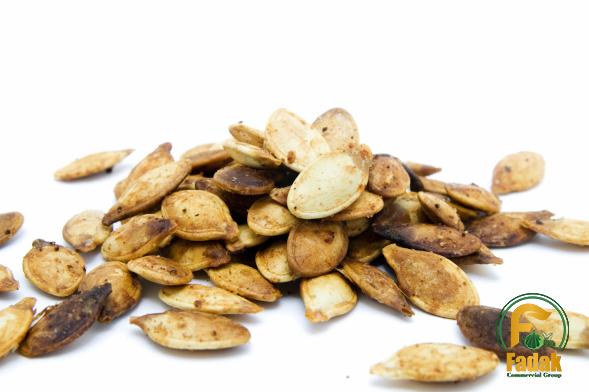


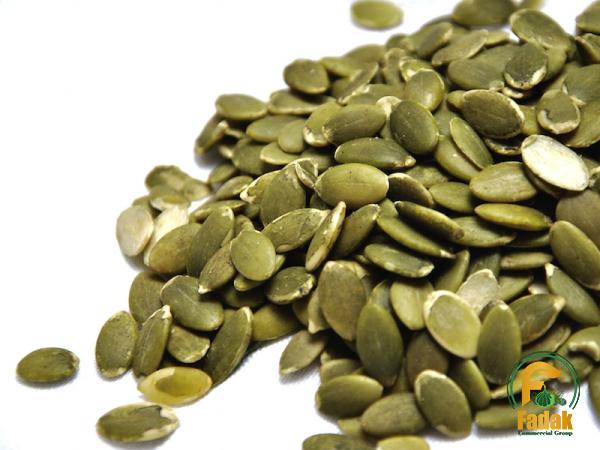

Your comment submitted.